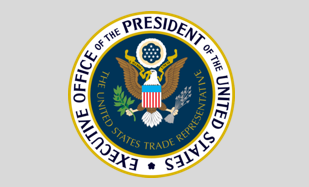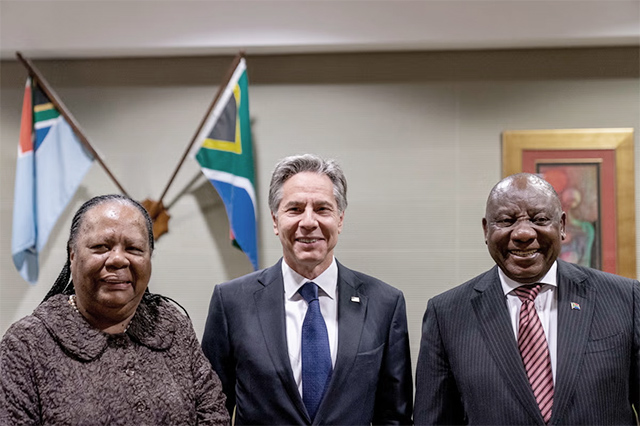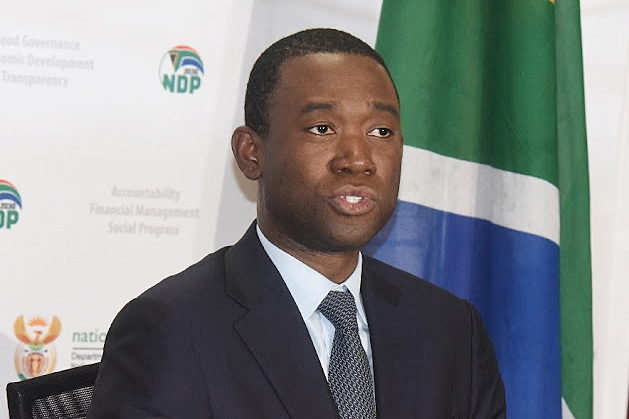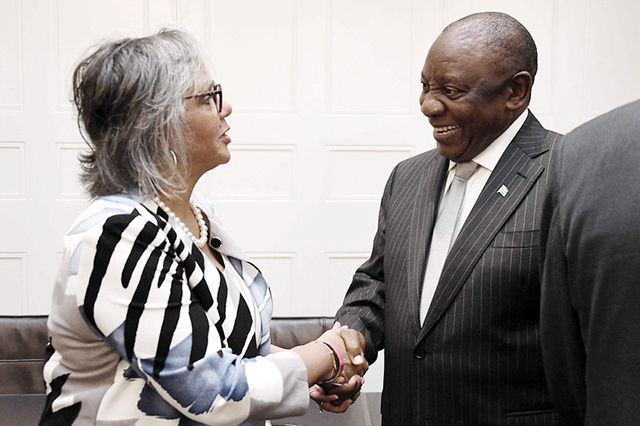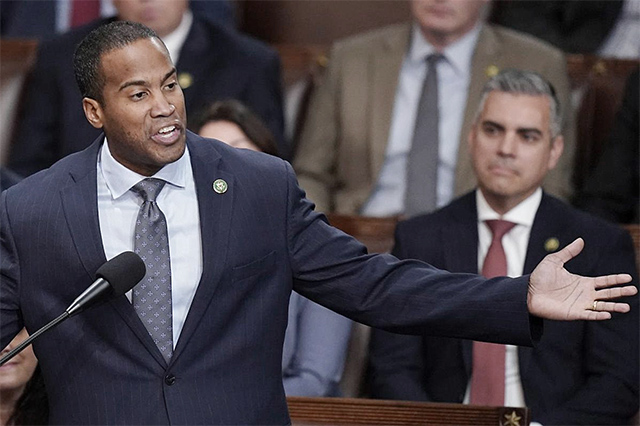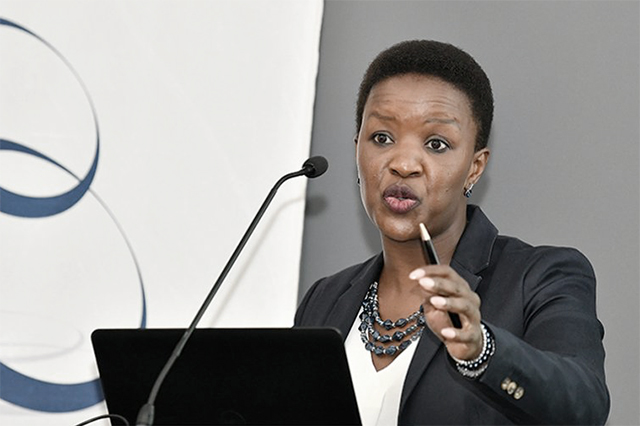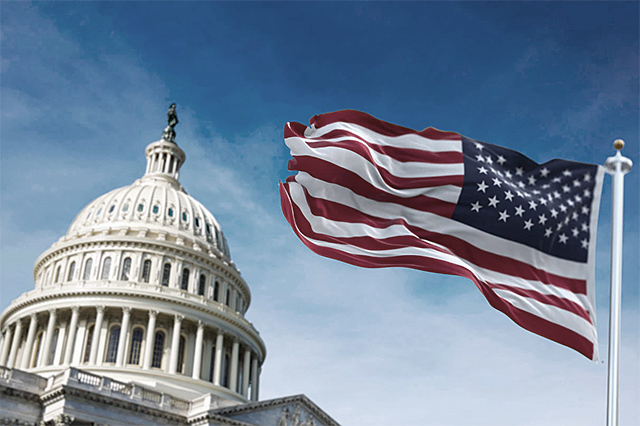Statement by the US Representative at the Trade Policy Review of the Southern African Customs Union
Statement by Ambassador Michael Froman in Geneva, 4 November 2015
Thank you, Chair. The United States would like to welcome the delegation from the SACU countries, as well as the Executive Secretary of SACU, to this fourth review of the trade policies and practices of the Southern African Customs Union.
We would also like to thank the governments of the five SACU member countries and the WTO Secretariat for the comprehensive reports that they prepared for this review. We note that our delegation submitted written questions in advance of this review and we look forward to receiving responses prior to the completion of the review.
As noted in the Secretariat’s report, SACU member countries have made important strides since the last trade policy review. Since the 2009 global economic crisis, at which time SACU as a whole registered negative growth, SACU member economies have managed to collectively grow at about 3 percent annually on average; albeit, unevenly among individual SACU members. At the same time, we recognize that the SACU member countries continue to face serious challenges that have kept them from achieving their full economic potential. As the Secretariat’s report notes, intra-country inequalities within SACU remain among the highest in the world, with high unemployment and poverty as common challenges.
Since the last trade policy review, the United States is pleased to continue a robust and vibrant trade and investment relationship with each of the SACU countries. Overall, two-way U.S.-SACU trade in goods grew by 40 percent to $16 billion between 2009 and 2014. Each SACU member country has exported a variety of products to the United States under the African Growth and Opportunity Act (AGOA) and the U.S. Generalized System of Preferences (GSP).
AGOA remains the foundation of our economic engagement with Africa, and we are pleased that the Trade Preferences Extension Act of 2015 (TPEA) extended AGOA – including the third-country fabric provision – through 2025, the longest ever extension of AGOA. The TPEA also extended GSP through 2017, thus providing producers, exporters, and investors across sub-Saharan Africa the certainty of duty-free access for a wide variety of products to the U.S. market under both AGOA and GSP.
South Africa has continued to be a significant beneficiary of AGOA. It is the largest non-oil exporter under AGOA, and exports a broad array of goods to the United States under AGOA and GSP, including motor vehicles and parts, metals and minerals, agricultural products, textiles, and chemicals to name a few. Lesotho is a leading exporter of apparel to the United States under AGOA. Botswana exports apparel under AGOA, and Namibia exports worked marble, granite, and wood products under GSP. Swaziland continues to export sugar and other products under GSP, but became ineligible for AGOA benefits in 2015 after failing to take certain necessary steps to protect core labor rights, over the course of several years. All told, over 98 percent of SACU exports to the United States in 2014 entered the U.S. market duty-free.
Additionally, since 2008, the U.S.-SACU Trade, Investment, and Development Cooperation Agreement (TIDCA) has provided a forum for consultative discussions, cooperative work, and possible agreements on a wide range of trade issues, including customs and trade facilitation, technical barriers to trade, sanitary and phytosanitary measures, and trade and investment promotion. We look forward to working with SACU to address how to use the TIDCA as an effective vehicle to discuss the future of the U.S.-SACU trade and investment relationship based on a more mature, permanent, and reciprocal relationship.
The United States has submitted some questions about policies and processes at both the SACU-wide level and in individual countries. I would like to highlight just a few with respect to South Africa, and then also draw your attention to additional issues of interest to the United States.
With respect to South Africa, I would like to draw your attention to three areas:
- First, according to the Secretariat’s report, South Africa bases its animal health requirements on World Organization for Animal Health (OIE) guidelines and on risk assessments. In light of South Africa’s commitments under the WTO SPS Agreement, the United States remains extremely concerned regarding South Africa’s non-science based requirements that impact the import of poultry meat from countries affected by highly pathogenic avian influenza (HPAI); import requirements concerning Salmonella in poultry; import requirements for beef; and finally, import requirements concerning animal health issues related to pork, including trichinae, pseudorabies, and porcine reproductive and respiratory syndrome.
- Second, we remain concerned about policies that may ultimately have a chilling effect on foreign investment in South Africa. In particular, the provision contained within the Private Security Industry Regulation Amendment to require at least 51 percent South African ownership and control of foreign-owned private security firms would negatively affect existing foreign investment in this sector. If signed into law, the bill’s local ownership requirement would create a disturbing precedent concerning firms in a broad range of sectors, and would likely discourage foreign firms, including U.S. firms, from considering new investments in South Africa.
- Third, we note South Africa’s concern, as stated in SACU’s report, related to a provision contained within the Trade Preferences Extension Act of 2015 that requires an out-of-cycle review of South Africa’s eligibility to receive the duty-free benefits afforded under AGOA. We note that South Africa, like all AGOA-eligible countries, must meet certain eligibility criteria to take advantage of AGOA’s benefits, and we encourage South Africa to take the necessary steps to demonstrate that it is meeting those requirements.
With respect to SACU writ large, we are interested in hearing how plans for wider regional economic integration in Africa might affect SACU’s future, including the recently launched Tri-Partite FTA encompassing the Southern African Development Community, the East African Community, and the Common Market for Eastern and Southern Africa; as well as the African Union’s plans for a Continental FTA also announced earlier this year.
Finally, we applaud Botswana for playing a leadership role within SACU and ratifying the WTO Trade Facilitation Agreement (TFA) and notifying the WTO of its category A commitments. The WTO TFA would set the stage for more efficient customs and border procedures and coordination and encourage regional integration among SACU member countries. The TFA is widely recognized as having broader development benefits in addition to promoting regional integration, private-sector investment, and supporting export promotion. We encourage Lesotho, Namibia, Swaziland, and South Africa to follow Botswana’s lead to accept and implement the agreement as soon as possible. The United States stands ready to work with SACU member countries to ensure their timely implementation of the agreement.
In closing, the United States appreciates the opportunity to participate in this review of SACU’s trade policy, and we look forward to further discussions on trade matters with the delegation from the SACU countries.
Thank you, and we wish you a successful Trade Policy Review.


